The final week of the finest television
Cycling across the media landscape
It’s an exaggeration to call ITV’s coverage of the Tour de France ‘the finest television’. [1]
But when I pop it on while making coffee or chopping vegetables, it does feel like one of the finer things in life. And in less than a week, we’ll lose it.
Le Tour
Cycling has a unique hold on me because of the way it happens in the real world.
The ‘Roadbook’ is a manual which is supposed to tell professional team staff time and where to arrive for the start of each stage. for example. Yet it devotes paragraphs to the gastronomy, history and culture of the start and finish locations.
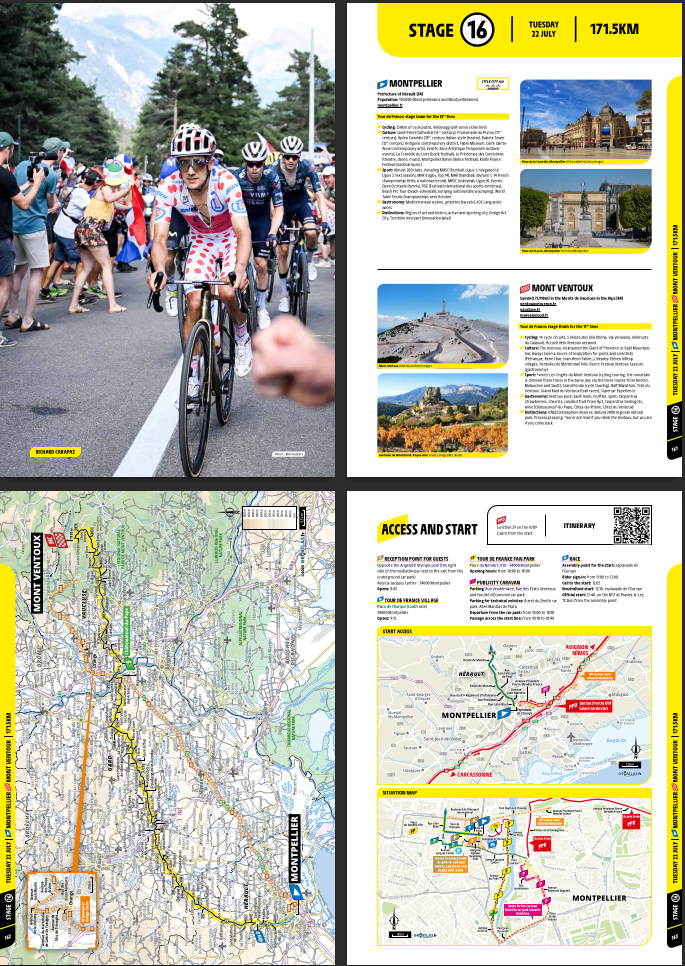
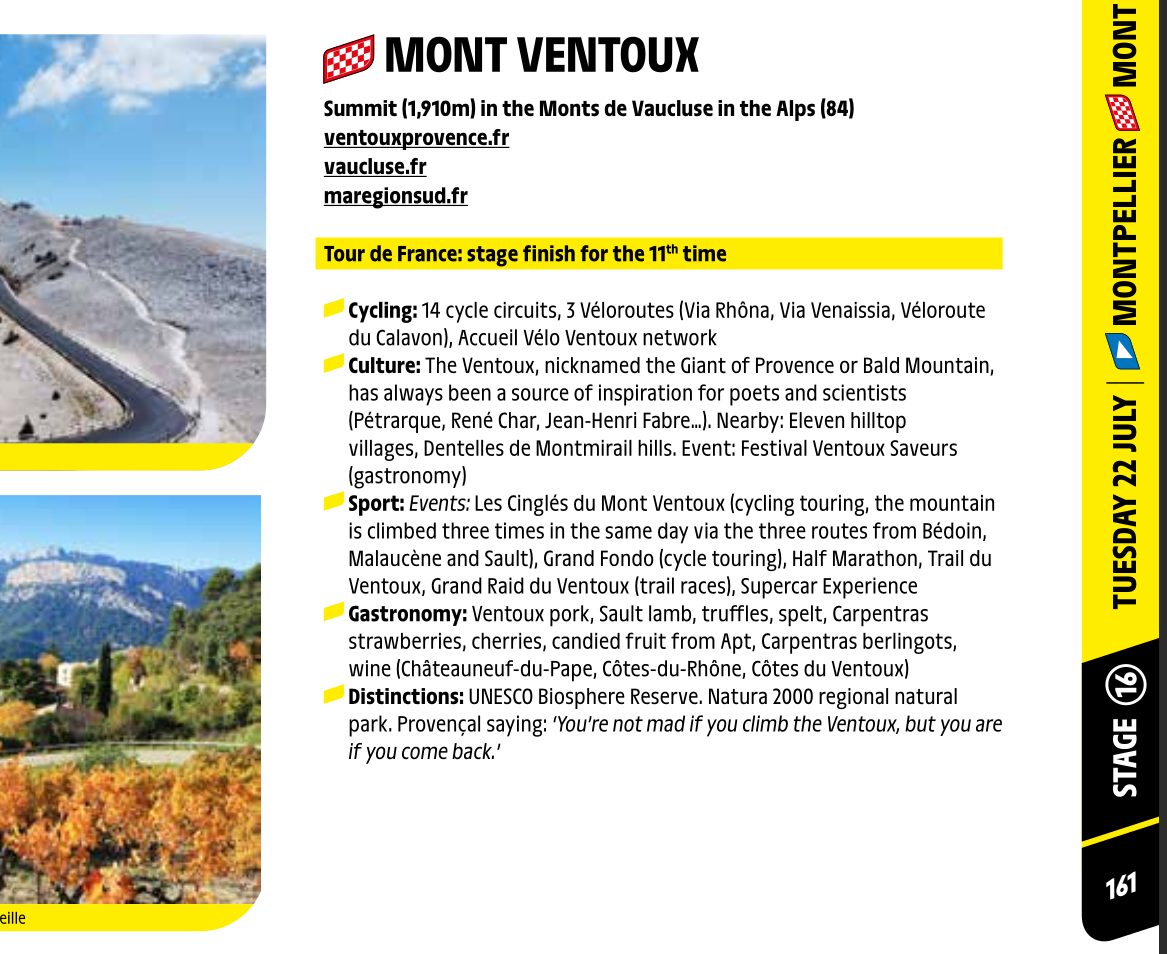
Comparable is the experience of spectating. If you make a day of it you spend all day by the side of the road, hopefully with a good baguette, cheese and something to wash them down with. The caravan of vehicles and then riders whizz past. Then you go home. When the Tour of Britain passed near my grandmother’s house a few years ago, she only took ten minutes from her day to pop to the end of the road and back to see the race go past, then got back to what she was doing.
Cycling happens in the real world.
‘I thought you had put on the cycling? What on earth are they talking about?’
One evening a few years ago I accidentally switched on a repeat of a full stage, not the highlights. My flatmate looked up: ‘I thought you had put on the cycling? What on earth are they talking about?’
The commentators were discussing the Cathars, an 11th century Christian sect. And on a multi-hour full stage, when there’s a lull in the racing, the commentators seize the opportunity to digress from the sport. And I hadn’t clocked how unusual it seemed for my flatmate. It seemed natural.
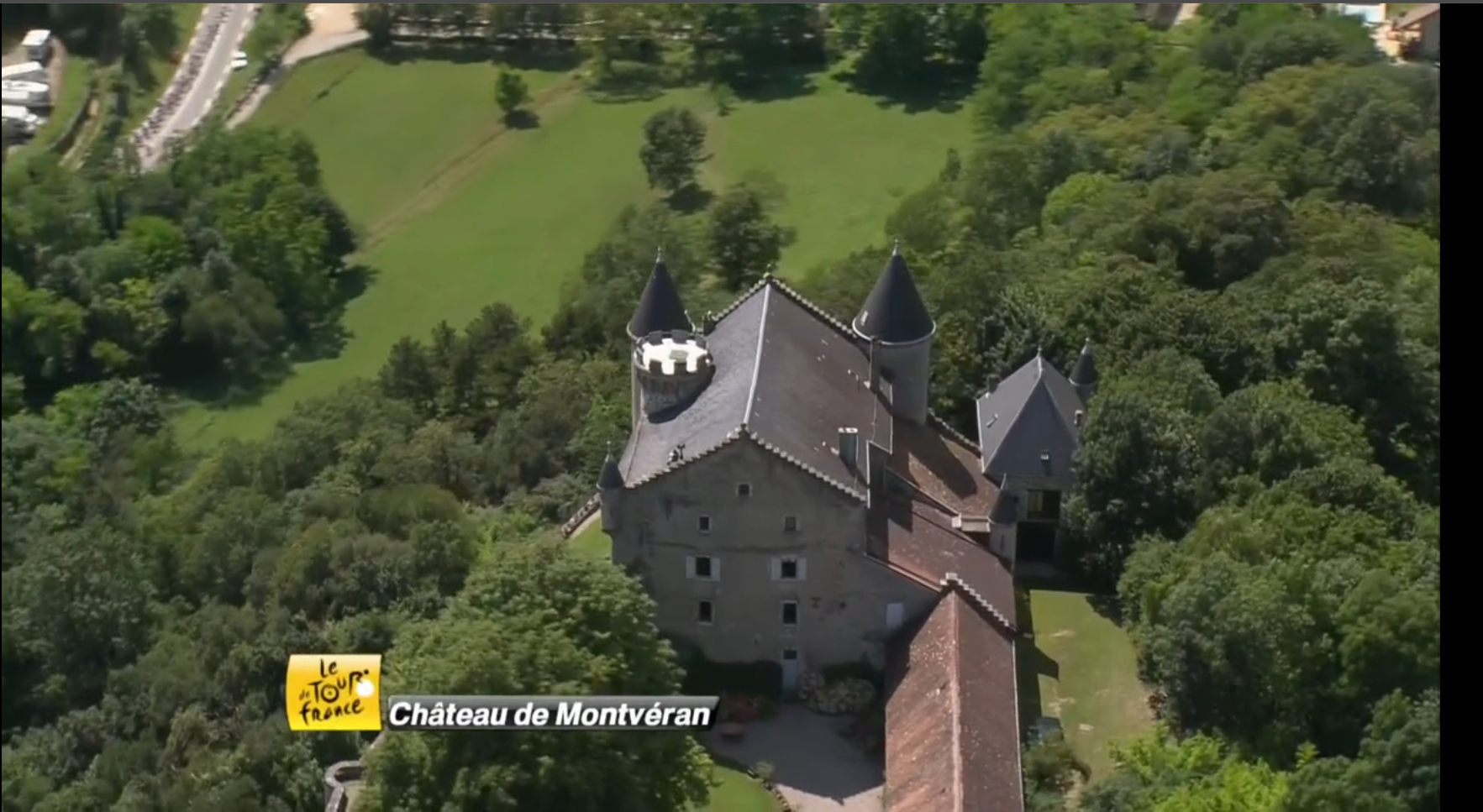
Equally natural are segments during the highlights shows on Mexican grocery stores, pre-war Communist aeronautical engineers and eccentric sculptors.
They’re natural not only because of cycling’s integration into the real world, but also thanks to the team making the programme. The programme opens with deadpan dad jokes and closes with something self-deprecating. Commentators seem effortlessly erudite because they’re boyishly enthusiastic about the non-cycling elements (‘Anyway, if I could just finish telling you about that château…’). When the racing is dramatic they don’t need to shout ‘OH MY GOD THE DRAMA HE’S GOING TO WIN’. No. They don’t tell, they show. I think that’s what’s makes it compelling.
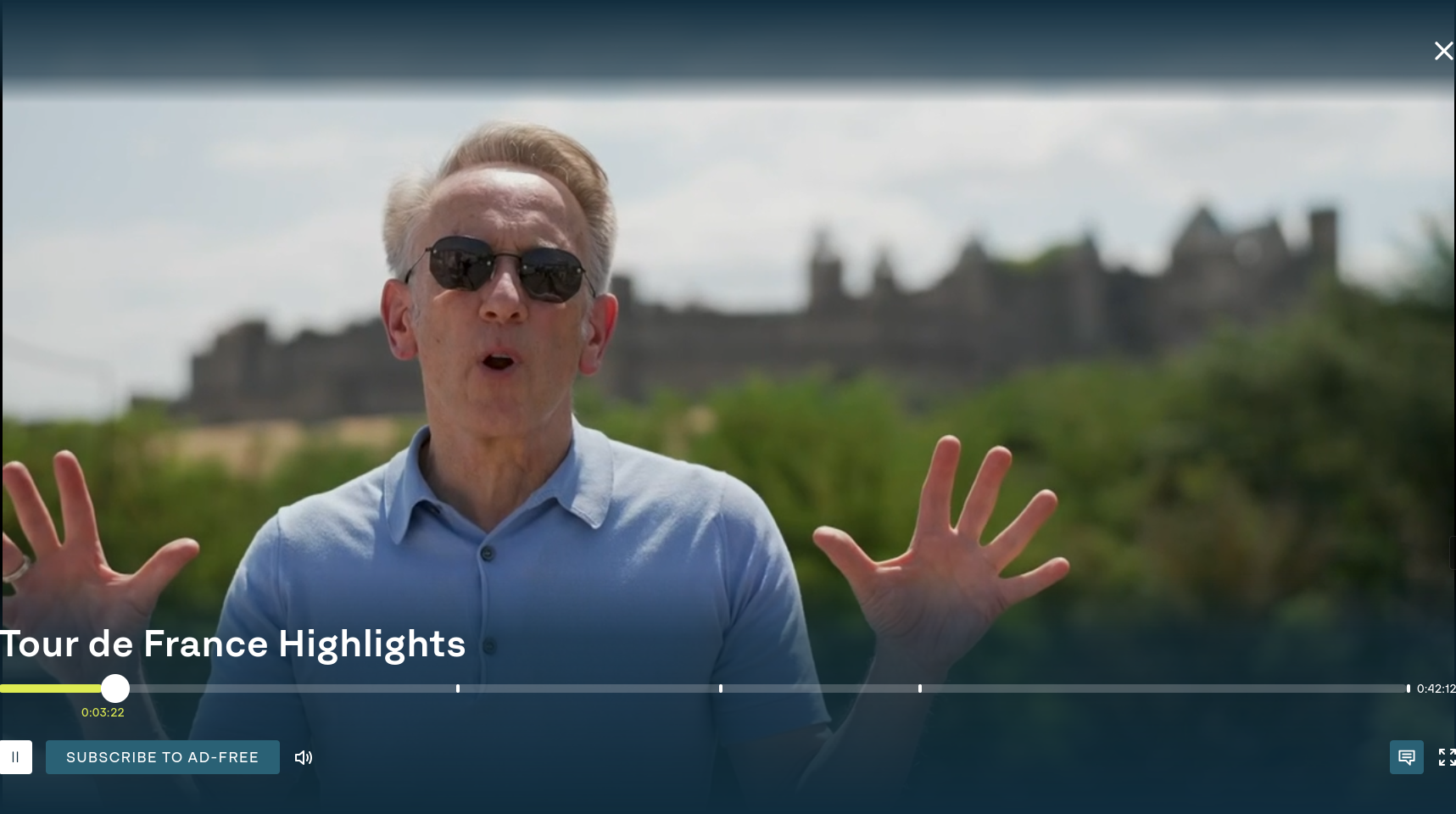
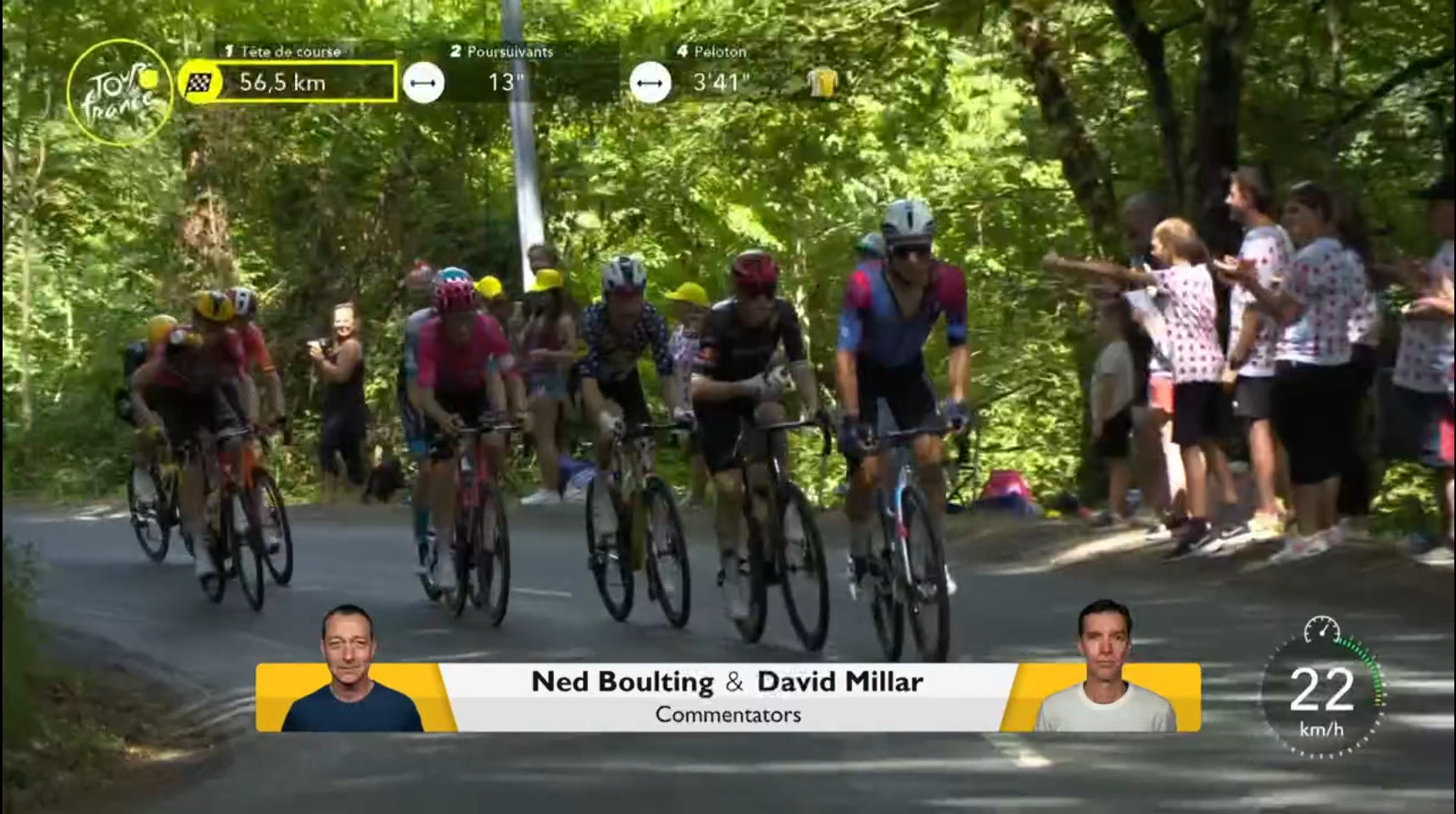 Other sports coverage earnestly foists the action in your face. Half time in the Merseyside Derby doesn’t pan away to a brief exploration of Liverpool Docks. Commentators at Silverstone don’t muse about the area’s geology. No, we have to be breathlessly told before, during and after that every moment is filled with drama; and this is the Avengers of commentary teams; and we need fake drums and explosions because they think we’re too stupid to pay attention without them.
Other sports coverage earnestly foists the action in your face. Half time in the Merseyside Derby doesn’t pan away to a brief exploration of Liverpool Docks. Commentators at Silverstone don’t muse about the area’s geology. No, we have to be breathlessly told before, during and after that every moment is filled with drama; and this is the Avengers of commentary teams; and we need fake drums and explosions because they think we’re too stupid to pay attention without them.
Urbane commentary, delivered in a laid-back manner, letting the race deliver the drama.
No industry for old men
This will be the last Tour on free to air in the UK after 40 years.
I don’t think Eurosport and TNT, who have exclusive rights until 2030 in the UK, will be as fun. They take themselves seriously. The helicopter shots of châteaus are an afterthought. It’s thick with theatrics. I don’t want to put that on in the background while chopping vegetables.
The story of UK Tour de France broadcasting follows that of the wider media. From terrestrial Channel 4 and ITV, to Eurosport on satellite and now the £31 a month TNT.
There is a faint hope that the ITV exit clears space for a fresh take. For everything I love about the coverage, terrestiral TV adverts, prize competitions and exclusively middle-aged male presenting team shackle it to the past.

The old ITV team hopes ‘NSF’ will replace the ‘free-to-air’ notion component. They’ll be ‘wildly digressing and enjoying the whole sort of cultural trip and the lap around France as well, but at the same time keeping you in touch with what’s going on in the race’. That’s comforting for those mourning the loss of ITV. But I’m not sure it’s fresh enough. The existing podcast is barely discoverable. That the acronym is easily confused with the Reddit acronym meaning ‘explicit content’, betrays its TV-era origins.
Today’s media landscape is characterised by deeply-researched long-form podcasts and viral short-form videos. Tomorrow’s may be shaped by generative AI and a multipolar economy. For the old spirit of worldly, relaxed, cycling coverage to live on, it must exploit these more fertile parts of the media landscape. Nostalgia is not profitable in the long run.
Whatever the future, pile up a few vegetables on the chopping board and enjoy one last week of some fine television.
[1] The content has been produced by VSquared since 1986, when it arrived on Channel 4. ITV bought the rights in 2002. Similarly, I typically ‘tune in’ from a phone or laptop. But I’ll call it ITV TV for simplicity.
Further reading:
- INRNG, the finest cycling blog, wrote on the subject here: https://inrng.com/2024/10/itv-ends-tour-broadcast/. (As did the rest of the cycling press.)
- One of the main presenters has a paid newsletter https://nedboulting.substack.com/.
- To help explain what is a rather mystifying sport, in 2018 I wrote this by the roadside in Bergerac: https://medium.com/@mbanerjeepalmer/two-principles-to-actually-understand-the-tour-de-france-1aa1b5b67ae9
- Further watching: if you’ve got this far then I should point out the world of cycling beyond the Tour. I used to prefer the Giro and Vuelta to the Tour, since they’re so unpredictable. The spring classics are the pinnacle of cycling entertainment.
- If media more broadly interests you, look at the media products I’m building at https://bnqt.app and reach out.